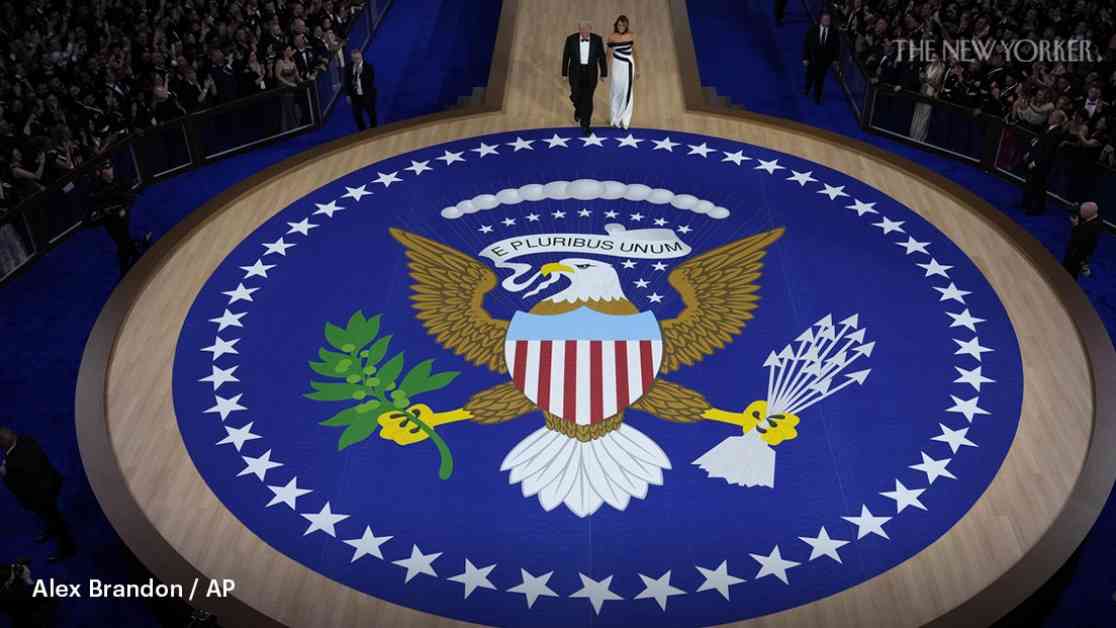Title: Trump’s Second Inauguration: A Brave New America
As the biting cold of January gripped Washington, D.C., the stage was set for Donald Trump’s second Presidential Inauguration in 2025. Unlike previous ceremonies, this event took place indoors at the Capitol Rotunda, accommodating a select audience of six hundred individuals. Among the attendees were the First Family, including the towering eighteen-year-old Barron Trump, as well as prominent figures such as Elon Musk, Mark Zuckerberg, Jeff Bezos, and foreign ideologues like Giorgia Meloni and Javier Milei. Notably absent from the main event was Governor Ron DeSantis, relegated to the Capitol Visitor Center, a stark reminder of the swift shifts in political power.
In his address to the nation, Trump proclaimed January 20, 2025, as “Liberation Day” for American citizens, signaling a new era under his leadership. The day unfolded with a flurry of executive orders, signaling a drastic departure from previous administrations. From withdrawing from international agreements like the Paris climate accord and the World Health Organization to implementing strict immigration policies and revoking federal diversity programs, Trump wasted no time in reshaping the country’s landscape.
One of the most controversial directives was Trump’s assertion that there are only two sexes, male and female, grounded in unchangeable reality. Additionally, he challenged the long-standing principle of birthright citizenship, declaring that children born to parents in the country illegally would not be granted American citizenship. These bold moves set a precedent for a society where fundamental norms and rights were up for renegotiation.
Amidst these sweeping changes, Trump’s transactional approach to governance came to the fore. From eyeing strategic acquisitions like Greenland’s mineral deposits to renegotiating deals with countries like China, the President’s focus on economic interests was palpable. The presence of business leaders like TikTok’s Shou Zi Chew and political figures added intrigue to the proceedings, hinting at the intricate web of relationships shaping Trump’s vision for America.
Despite his bold initiatives, Trump faced criticism from various quarters. The pardoning of individuals involved in the January 6th insurrection and the reversal of established policies drew ire from both political opponents and supporters. The President’s penchant for unilateral decision-making raised questions about accountability and the rule of law, prompting legal challenges and public outcry.
As the nation grappled with Trump’s unorthodox governance style, a broader societal shift was evident. A growing disillusionment with established norms and ideals fueled a wave of anti-idealism, empowering Trump to push the boundaries of traditional governance. The echoes of discontent that reverberated through the country following the pandemic found a voice in Trump’s unapologetically aggressive approach to policy-making.
While Trump’s second term promised a bold redefinition of America, the road ahead was fraught with challenges and uncertainties. As opposition mounted and legal battles ensued, the resilience of democratic institutions and the will of the people would be tested. In a political landscape marked by polarization and upheaval, the only certainty was that the heat of change was palpable, signaling a new chapter in America’s history.












